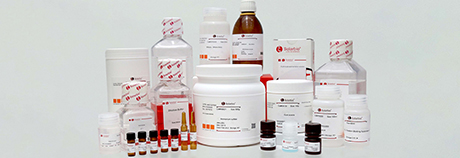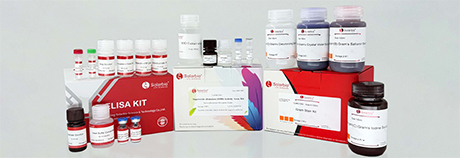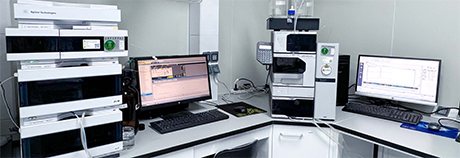Diabetes-related Biochemical Indicators
Classification of Diabetes
At present, diabetes mellitus is divided into four types: Type 1 diabetes mellitus (T1DM), type 2 diabetes mellitus (T2DM), gestational diabetes mellitus (GDM) and special types of diabetes mellitus.
01 Type 1 Diabetes Mellitus
Type 1 diabetes, also known as insulin-dependent diabetes, is more common in adolescents, accounting for about 5% of diabetics. Its main feature is the destruction of islet B cells, resulting in absolute insulin deficiency, and it is clinically prone to ketoacidosis, which must be treated with insulin.
02 Type 2 Diabetes Mellitus
Type 2 diabetes mellitus is the most common type of diabetes, accounting for more than 90% of all diabetics, and is usually associated with obesity, poor eating habits, lack of exercise and other factors. The function of islet B cells gradually decreases in patients with type 2 diabetes, due to insufficient insulin secretion or insulin resistance. Progression of the disease can be slowed by lifestyle interventions (e.g., diet control and exercise) and medications.
03 Gestational diabetes mellitus
Gestational diabetes is abnormal glucose metabolism that first occurs or is detected during pregnancy and is usually diagnosed by an oral glucose tolerance test (OGTT) during the 24th to 28th week of gestation. Most women with gestational diabetes will return to normal blood glucose levels after delivery, but continuing to monitor blood glucose changes and maintaining a healthy lifestyle is necessary.
04 Special Types of Diabetes Mellitus
Special types of diabetes mellitus are types of diabetes caused by genetic factors, endocrine disorders, drugs or chemicals, like genetic defects of islet B cell function, genetic defects of insulin action, exocrine pancreatic diseases, etc. These types of diabetes are relatively rare and requires individualized treatment according to the specific cause.
Diabetes Related Studies
Indeed, diabetes has been called a “one change makes all change” disease, with harms that are not limited to poor glycemic control but have progressive, unrecognized effects on multiple organs and systems.
The core pathological feature of diabetes is the disorder of glucose metabolism, which is manifested as abnormal increase or fluctuation of blood glucose. This metabolic imbalance is the core pathological feature and main pathogenesis of diabetes. Glucose metabolism disorders not only directly lead to hyperglycemia, but also may cause a series of metabolic abnormalities and complications, so it has become the starting point and focus of diabetes research.
Abnormal lipid metabolism is a major focus of diabetes research. Glucose metabolism disorders are usually accompanied by insulin resistance, which can reduce the uptake of glucose by adipocytes and promote the synthesis and storage of fatty acids, thereby aggravating lipid metabolism disorders. In addition, insufficient insulin secretion or impaired islet function under hyperglycemia will further aggravate abnormal lipid metabolism.
Long-term increased fatty acid synthesis and lipid metabolism disorders can also cause liver and kidney cell damage, oxidative stress and inflammatory response, impairing the normal function of liver and kidney. For example, excessive accumulation of lipid peroxidation products (ROS) can trigger lipid peroxidation of cell membrane, leading to hepatocyte and renal tubular cell damage. As the main organ of lipid metabolism, the impairment of liver function will further aggravate the disorder of lipid metabolism and form a vicious circle.
Related Products
Solarbio diabetes series biochemical assay kits provide accurate solutions for your scientific research. If you want to get more details, please go to our Store website: www.solarbio.com.
|
Classification |
Item No. |
Name |
|
Glucose metabolism |
BC2490/BC2495 |
Blood Glucose Content Assay Kit |
|
BC5610/BC5615 |
Glycosylated Hemoglobin (GHb) Content Assay Kit |
|
|
BC0340/BC0345 |
Glucogen Content Assay Kit |
|
|
Lipid metabolism |
BC1980/BC1985 |
Total Cholesterol(TC) Content Assay Kit |
|
BC0590/BC0595 |
Free fatty Acids(FFA) Content Assay Kit |
|
|
BC1890/BC1895 |
Free Cholestenone(FC) Content Assay Kit |
|
|
BC5330/BC5335 |
Low-Density Lipoprotein Cholesterol(LDL-C)Content Assay kit |
|
|
BC5320/BC5325 |
High-Density Lipoprotein Cholesterol(HDL-C)Content Assay Kit |
|
|
Liver function |
BC1560/BC1565 |
Glutamic-oxalacetic Transaminase(GOT) Activity Assay Kit |
|
BC1550/BC1555 |
Glutamic-pyruvic Transaminase(GPT) Activity Assay Kit |
|
|
BC2140/BC2145 |
Alkaline Phosphatase(AKP/ALP) Activity Assay Kit |
|
|
BC5170/BC5175 |
Direct bilirubin (DBIL) Content Assay Kit |
|
|
BC5180/BC5185 |
Total bilirubin (TBIL) Content Assay Kit |
|
|
BC6300/BC6305 |
Total bile acid (TBA) Content Assay Kit (Enzymatic Cycling Method) |
|
|
BC3180/BC3185 |
Protein Content Assay Kit(Biuret Method) |
|
|
BC5820/BC5825 |
Albumin Content Assay Kit (Bromocresol Purple Colorimetry) |
|
|
BC5830/BC5835 |
Albumin Content Assay Kit (Bromocresol Green Colorimetry) |
|
|
BC1220/BC1225 |
γ-glutamyl Transpeptidase(γ-GT) Activity Assay Kit |
|
|
Renal function |
BC1360/BC1365 |
Uric Acid(UA) Content Assay Kit |
|
BC1530/BC1535 |
Urea Nitrogen/Urea Content Assay Kit |
|
|
BC4910/BC4915 |
Creatinine(Cr)Content Assay Kit |
|
|
Oxidative stress |
BC0020/BC0025 |
Malondialdehyde(MDA) Content Assay Kit |
|
BC5240/BC5245 |
Lipid Peroxide (LPO) Content Assay Kit |
|
|
BC0170/BC0175 |
Superoxide Dismutase(SOD) Activity Assay Kit |
|
|
BC5160/BC5165 |
Superoxide Dismutase(SOD)Activity Assay Kit (WST-1 Method) |
|
|
BC1190/BC1195 |
Glutathione Peroxidase(GPX) Activity Assay Kit |
|
|
BC6270/BC6275 |
Total Glutathione Peroxidase Activity Assay Kit |
|
|
BC1170/BC1175 |
Reduced Glutathione(GSH) Content Assay Kit |
|
|
BC1180/BC1185 |
Oxidized Glutathione(GSSG) Content Assay Kit |
The above is the introduction of Solarbio diabetes series biochemical products. We are committed to helping your scientific research through high-quality products. Let’s work together to open a new chapter of scientific research.
-END-








